Presenting: The Help Elected Women Really Need

Say you’ve just scored your dream job. And that dream job involves representing your town, county, state, or even country, dedicating your time and energy to making a difference in people’s lives. You’re feeling energized, hopeful, idealistic even. And then, on day one, you face a harsh reality: The majority of governments in this country weren’t set up with women in mind. You knew your job would be tough, but maybe you didn’t realize how tough.
It’s a previously underreported scenario we heard again and again while talking to elected women for How to Succeed in Office. They face far more roadblocks than their male counterparts on all fronts—financial, logistical, physical, mental, emotional, we could go on—with women of color and working parents often being even more affected.
Below are ideas and tangible solutions for the biggest and most common challenges women in office face. We also enlisted veteran politicians to help out a few newcomers with their very specific quandaries. Because we know it takes a village, and we’re pretty sure it’s women who are going to get each other out of this mess. Problem #1?


THE SITUATION
“Elected positions were created in the image of white landowning men,” says Ghida Dagher, CEO and president of New American Leaders, a group that empowers immigrants, refugees, and their allies to run for and succeed in office. “And these jobs continue to be arranged in a way that supports and reinforces that structure of power.” Case in point: 45 states pay their legislators a salary that falls below the state’s median household income; other states pay...nothing at all. Meaning, if you’re an elected woman without generational wealth, a previously high-paying career, or lots of spousal support, you could be left scrambling to make ends meet—both personally and professionally. You might need to take on a second job to cover expenses like work-related travel, or childcare and healthcare (which may not come with elected roles). Or to pay your own teams, since state- and local-level positions rarely come with enough money to hire staff.
WHAT IT'S LIKE
When Mesha Mainor was elected to the Georgia House of Representatives in 2020, she quickly faced a startling reality: Her job had no preexisting budget; she could only be reimbursed up to $7,000 per year for anything she spent on communicating with constituents. “I didn’t use any of my budget in my first year,” says Rep. Mainor, who had quit her job in outpatient rehabilitation to run for office. “I wasn’t in the position to pay for the things I needed, then wait for reimbursement.” Instead, she did everything from answering emails to drafting bills to sending out newsletters herself. It was far from ideal, she says, but it did force her to learn every single aspect of the job, and it made her realize what kind of person she needed to hire once she was able to raise funds (which, yes, she also did herself).
HOW WOMEN ARE MAKING IT BETTER
In an effort to help close the political giving gender gap, the Electing Women Alliance matches female officials running for re-election with female donors. Similarly, the Leadership Now Project aids women running for office by connecting them with business leaders who double as donors.
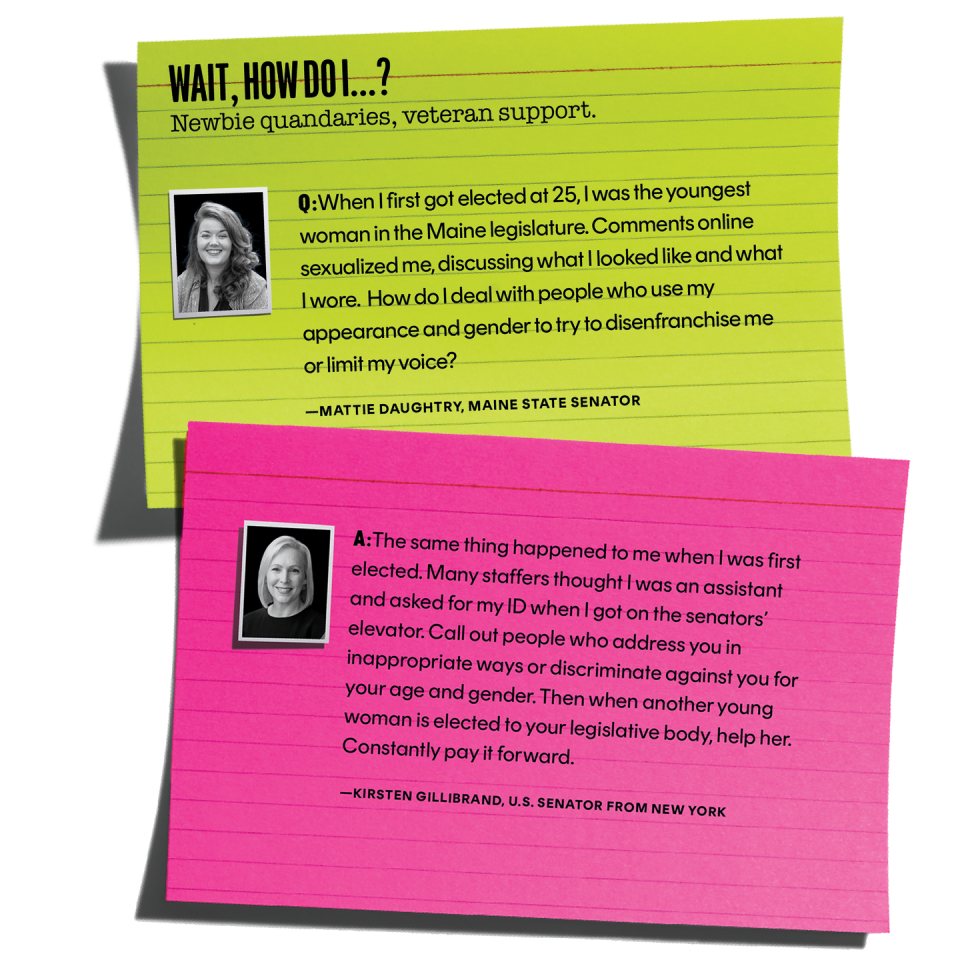


THE SITUATION
Once women take office, any lines between their personal and professional lives tend to disappear, says Larissa Martinez, founder and president of the Women’s Public Leadership Network, an organization that supports women running for and elected to office. “Your job is to be accessible to the public.” As in, very accessible: If, say, you’re a legislator who makes a controversial decision about housing, people will feel entitled to know everything about your own home. You’ll also be on-the-job 24/7, whether that looks like phoning an important donor at a moment’s notice or being approached by voters while grocery shopping. And you’re dealing with this pretty much on your own, says Martinez. “There aren’t a ton of resources to help manage these considerations.”
WHAT IT'S LIKE
“I get phone calls, emails, and messages around the clock from people who have questions or need my help,”says Sarah Compo Pierce, the mayor of Watertown, New York. She knows going out in public—including when she’s trying to enjoy some downtime—means running into and listening to constituents, though she’ll often ask for people’s contact information and if she can follow-up with them during more typical working hours. “The key is knowing when to take a break,” she adds. Even if that break means putting her daughter to bed...before logging back on to catch up on emails.
HOW WOMEN ARE MAKING IT BETTER
Sister District links up state legislators from different areas around the country to collaborate on problem-solving, including around work-life balance challenges.
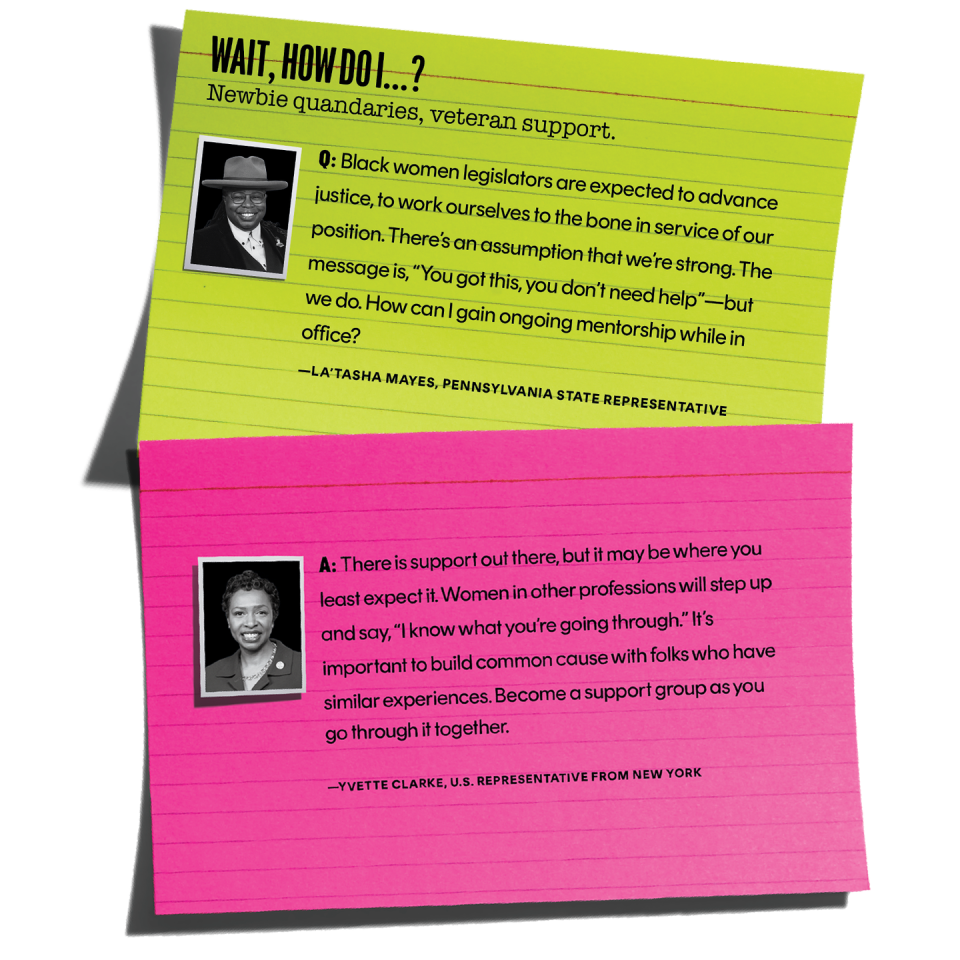
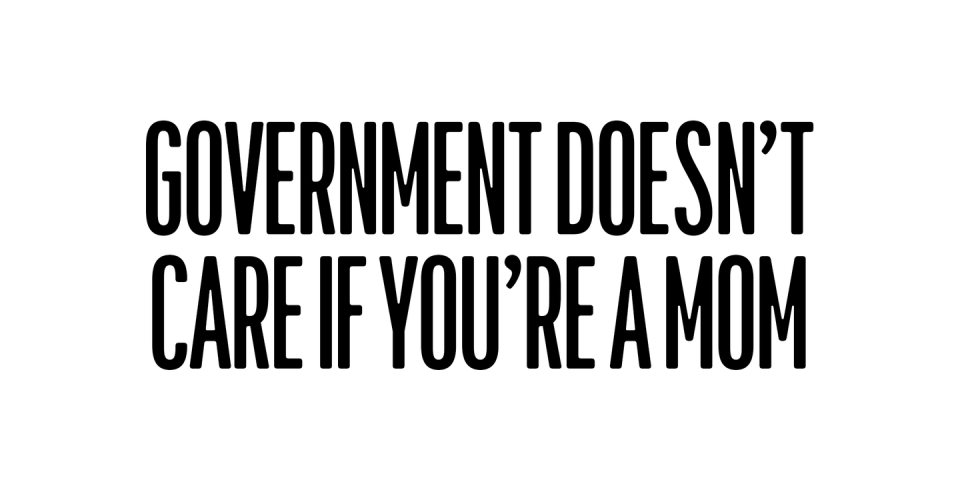

THE SITUATION
Forty-eight percent of Americans think having children at home is a disadvantage for elected women, per Pew Research Center data—and they’re right.“These jobs are not designed for motherhood,” explains Liuba Grechen Shirley, founder and CEO of Vote Mama, which supports mothers and parents in office. Most legislative workplaces have unpredictable voting schedules, making it hard to lock in childcare. Remote voting is a rarity, complicating schedules for parents with newborns, and on-site childcare can be nonexistent. Combined with frequent travel, these roadblocks can feel sky-high—often too high for moms of young ones. Says Shirley: “We literally have more men named John serving in the U.S. Senate than moms of minor children.”
WHAT IT'S LIKE
When she was 30 and a first-term state representative, current Michigan Governor Gretchen Whitmer returned to work after having her first child. A big study on the importance of breastfeeding had just come out: “So many legislators sent me copies of that article,” she says, “yet the legislature had no place for me to nurse.” Whitmer asked the then–senate leader to set aside a room for her, but she was denied and ended up squeezed into a colleague’s space that was “90 percent taken up by a copy machine.” It was, she says, dehumanizing. She now advises others to “band together and bring pressure on leadership” to pass policies on remote voting and nursing spaces.
HOW WOMEN ARE MAKING IT BETTER
Vote Mama connects moms in office to one another so they can exchange tips and information; its foundation aims to make government a more parent-friendly work environment.

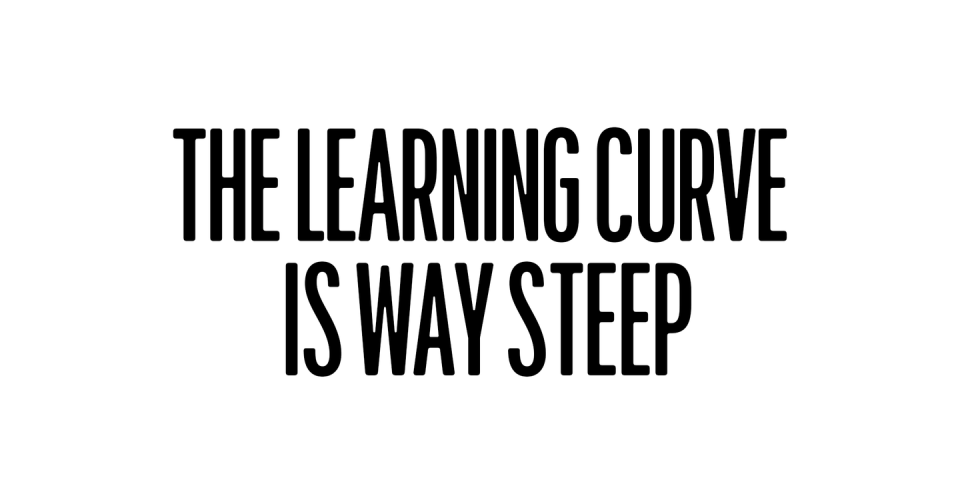

THE SITUATION
Very few bodies of government have extensive formal training that helps first timers get up to speed. “Lawmakers come into this blind,” explains GabyGoldstein, cofounder of Sister District, which supports elected officials in state legislatures. People have questions from “How do I get on a committee?” to “Where do I even sit?” And because fewer women have held elected positions in the past, there are fewer women around to explain how things are done, says Goldstein. “There’s a tremendous knowledge gap that’s compounded for women who may not have had the same experiences and privileges that men have had.”
WHAT IT'S LIKE
When Kentucky State Representative Josie Raymond took office in 2019, her first order of business was to work on the state budget, which included proposed road plans. “I didn’t know anything about those,” she says. “Nobody new did. The only people who really understood were full-time analysts who’d been working at the capitol.” So Raymond did what she’d do at any new job: She went straight to those experts for a crash course. “I wasn’t embarrassed to be like, ‘I don’t understand this at all,’” she says. “Younger women especially can do a ‘fake it til you make it’ thing. And you can feel vulnerable going in after a campaign and saying you don’t get something. But seeking out the people that do will keep you from asking stupid questions in publicly televised committees.”
HOW WOMEN ARE MAKING IT BETTER
National organizations like Women In Government can help elected women with understanding legislation, networking, and finding mentors. Separately, the Oasis Leadership Network offers know-how support to women and nonbinary legislators. And Higher Heights for America works with Black women in office to build political power and leadership skills.
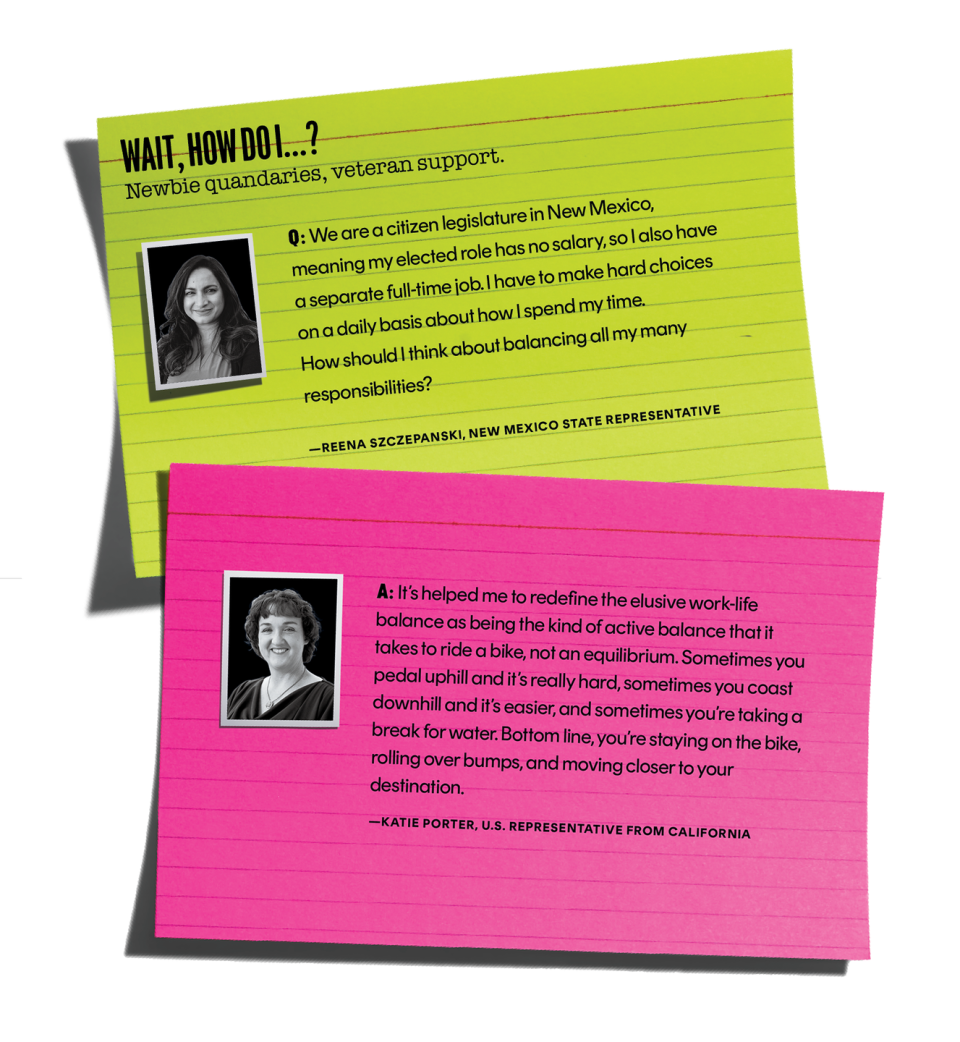
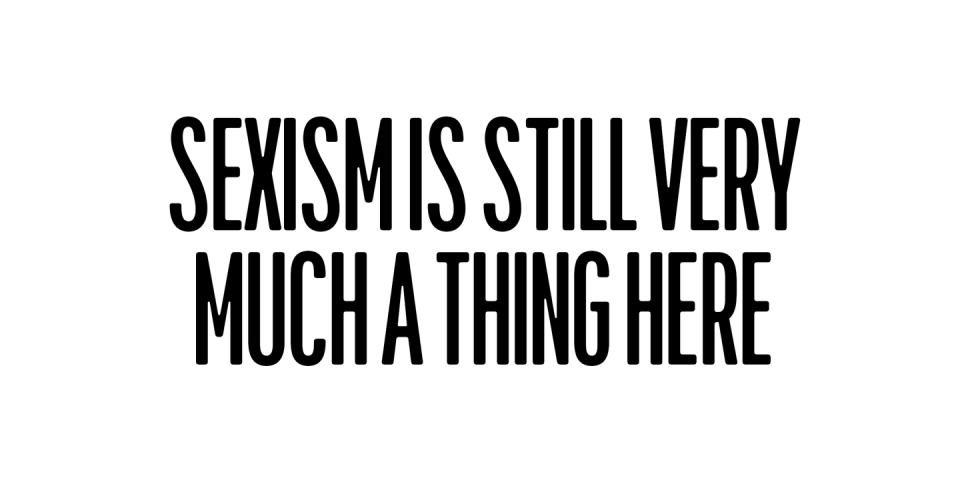

THE SITUATION
Sexism ranked as the largest perceived challenge for elected women in our Cosmopolitan/Pivotal Ventures poll. And while those on the ground tend to agree, the discrimination they face isn’t always blatant (though there’s that too). Sexist microaggressions can be a huge source of stress and frustration for women in office, says Cynthia Richie Terrell, executive director and founder of RepresentWomen, a group focussed on systemic interventions that increase women’s representation. As in, male colleagues making decisions at 10 p.m. at a bar instead of during work hours. Or male elected officials asking female elected officials to pick up coffee. Or male lawmakers consistently interrupting female lawmakers when they’re speaking.
WHAT IT'S LIKE
Before running for mayor of Lexington, Kentucky, Linda Gorton sat on the city council for 16 years. That valuable experience didn’t stop someone from posting on Facebook while Gorton was campaigning: “Why don’t you just go back to the kitchen and put your apron back on?” There was also the time, early in her tenure as mayor, when she arrived at an event where a mayoral parking spot had been reserved. She asked a man to move so she could steer into it, and he replied, “The mayor wouldn’t like it if you took his parking space.”
HOW WOMEN ARE MAKING IT BETTER
Women’s Public Leadership Network offers training sessions and orientations to help newly elected lawmakers deal with tricky situations, including sexism in the workplace. Vote Run Lead also helps women working in state legislatures tackle these issues, starting at the candidacy level.
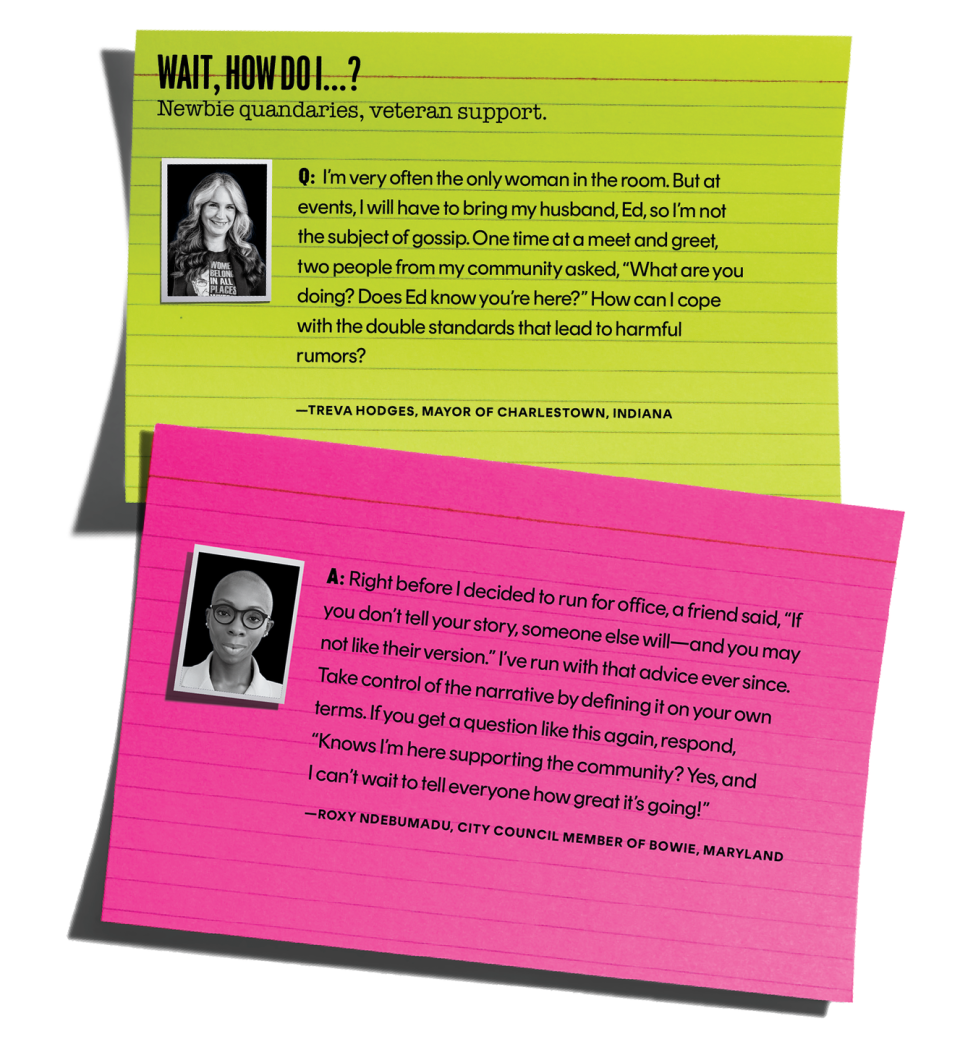
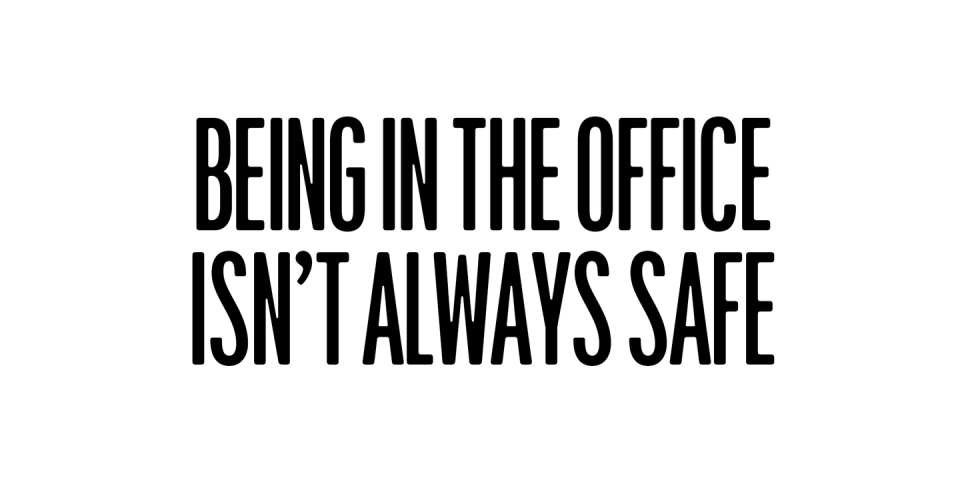

THE SITUATION
According to a recent report from the Brennan Center for Justice, 43 percent of state legislators have experienced threats or physical attacks within the past three years—and nearly 90 percent said they experienced harassment, intimidation, or stalking, with women reporting more abuse than men (and people of color reporting more abuse than white people). “The root of this is hyper polarization,” says Dagher. “It fueled keyboard warriors who forget this is a job folks are doing for the collective good; they make very personal attacks on women who are leading.” As a result, half of the elected women surveyed in the Brennan Center’s report said they were less willing to serve. Meanwhile, 31 percent of mayors polled by the Center for American Women and Politics have considered leaving office because of this kind of hostile environment.
WHAT IT'S LIKE
Earlier this year, Florida State Representative Anna Eskamani posted a work-related Reel, partaking in a popular meme. “Within 24 hours, the comments were terrible things, including comments about my body and weight, and that I should be hung from a lamppost.” She reported the incident to Instagram and has since developed other ways of dealing with political violence: She created a presentation to train her staff on de-escalation tactics when they’re confronted with aggression. Her office doesn’t have a dedicated security guard or check-in desk, so she installed security cameras and locks the doors during business hours, only letting guests inside once she knows who they are and why they’re there. And after dealing with a stalker, she only posts photos on social media once she’s left a location. “I’m always thinking about risk management,” she says.
HOW WOMEN ARE MAKING IT BETTER
New American Leaders’ Elected Officials Network provides a forum where first and second-generation Americans can trade ideas on how best to keep themselves and their families safe from harassment. The States United Democracy Center also offers anti-political violence resources to state and local officials.

Photographs: Florence Sullivan. Collages: Khadija Horton.
You Might Also Like


